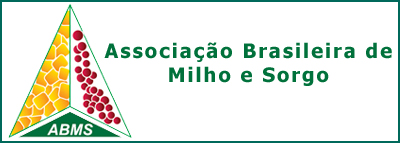SORGHUM GENOTYPES RESPONSE TO INOCULATION WITH PHOSPHATE SOLUBILIZING BACTERIA
DOI:
https://doi.org/10.18512/rbms2020v19e1177Palavras-chave:
Sorghum bicolor, phosphate solubilizing microorganisms (PSB), rock phosphate, plant growth-promoting bacteria (PGPB).Resumo
Sorghum bicolor adapts to phosphorus (P) deficient soils through mechanisms that contribute to its absorption and solubilization, including the association with microorganisms. The direct application of rock phosphate (RP) followed by the inoculation of phosphate solubilizing bacteria (PSB) is a sustainable alternative for P supply to the crops. The aim of this study was to evaluate the effect of PSB inoculation on two sorghum genotypes with different P responses (BR007 - efficient and responsive and SC283 - efficient and non-responsive) cultivated in soil fertilized with RP and triple superphosphate (TSP). The sorghum genotypes were inoculated separately with the Bacillus strains efficient in P solubilization, B116 and B70, and cultivated in different P fertilization sources (TSP, RP, ½TSP + ½RP). The results suggested that the inoculation response was dependent on sorghum genotype, P source and microbial strain. Inoculation of the genotype BR007, significantly increased root biomass and P content under greenhouse, as well as yield and grain P content in the field but no effect was observed on genotype SC283. The use of PSB as bioinoculants in combination with RP is a promising alternative to reduce the use of synthetic fertilizers, contributing for the sustainable sorghum production.
Downloads
Publicado
Como Citar
Edição
Seção
Licença
Autores que publicam nesta revista concordam com os seguintes termos:- Autores mantém os direitos autorais e concedem à revista o direito de primeira publicação, com o trabalho simultaneamente licenciado sob a Creative Commons Attribution License que permitindo o compartilhamento do trabalho com reconhecimento da autoria do trabalho e publicação inicial nesta revista.
- Autores têm autorização para assumir contratos adicionais separadamente, para distribuição não-exclusiva da versão do trabalho publicada nesta revista (ex.: publicar em repositório institucional ou como capítulo de livro), com reconhecimento de autoria e publicação inicial nesta revista.
- Autores têm permissão e são estimulados a publicar e distribuir seu trabalho online (ex.: em repositórios institucionais ou na sua página pessoal) a qualquer ponto antes ou durante o processo editorial, já que isso pode gerar alterações produtivas, bem como aumentar o impacto e a citação do trabalho publicado



